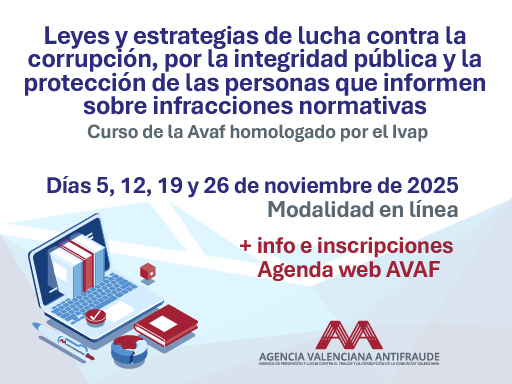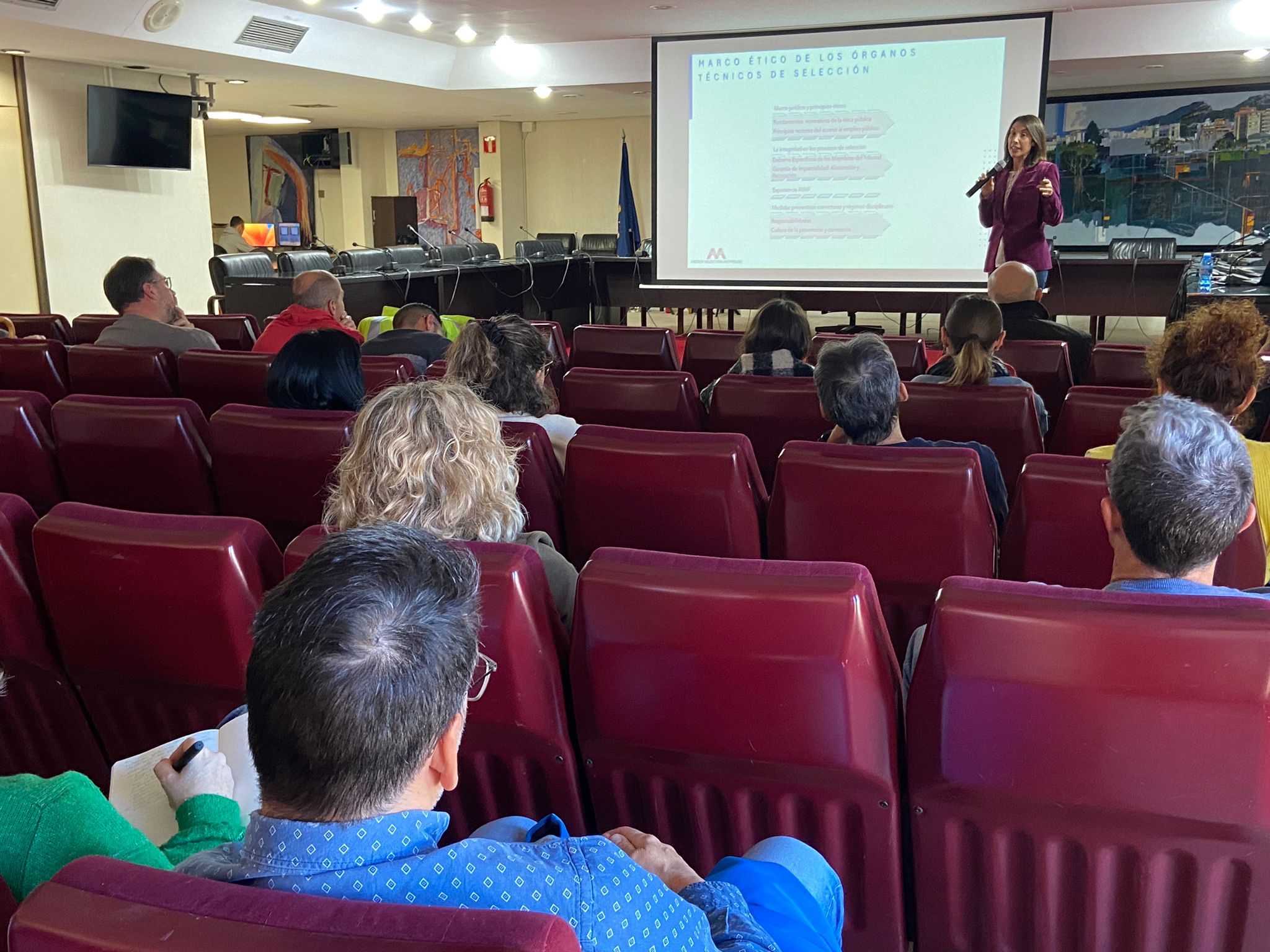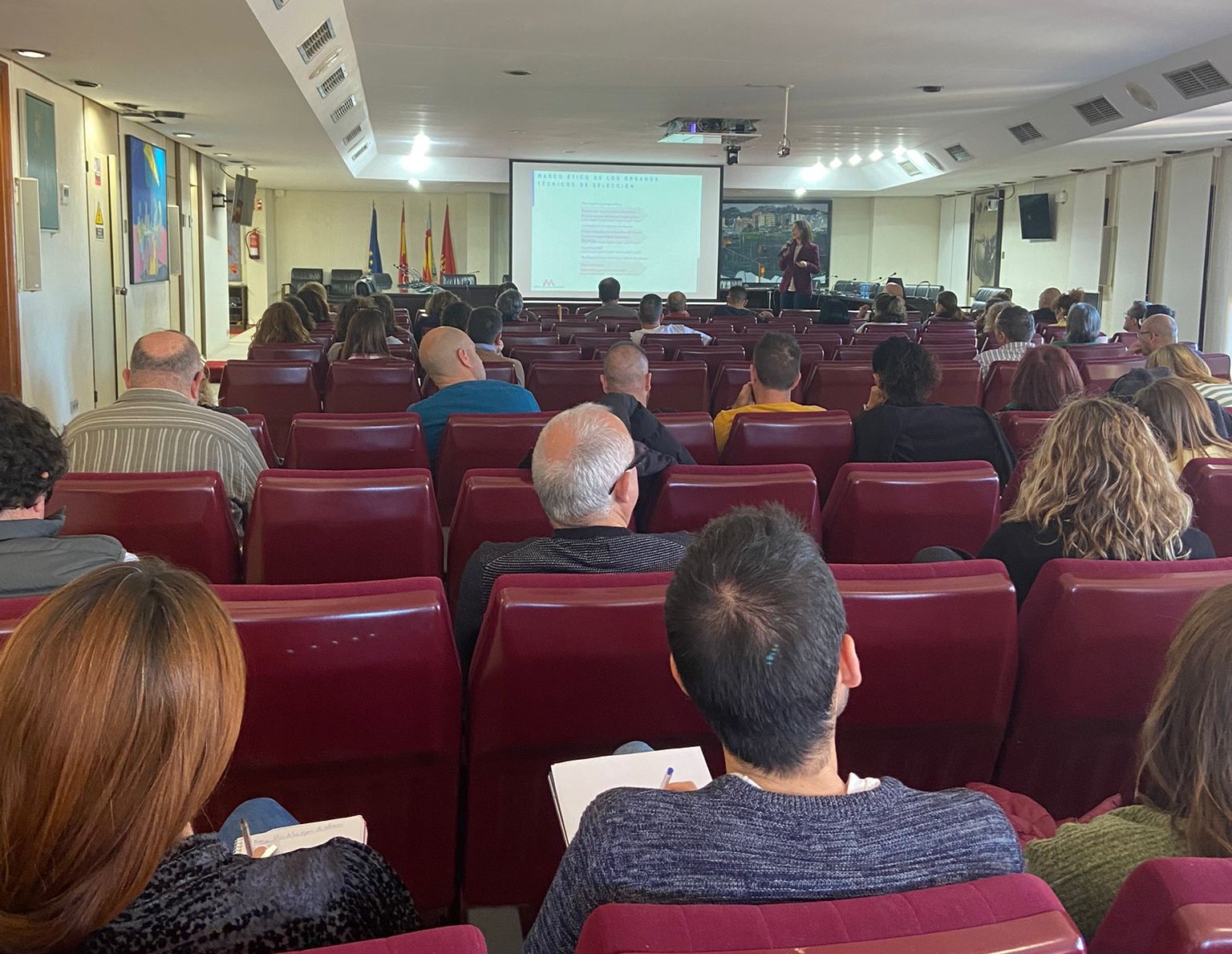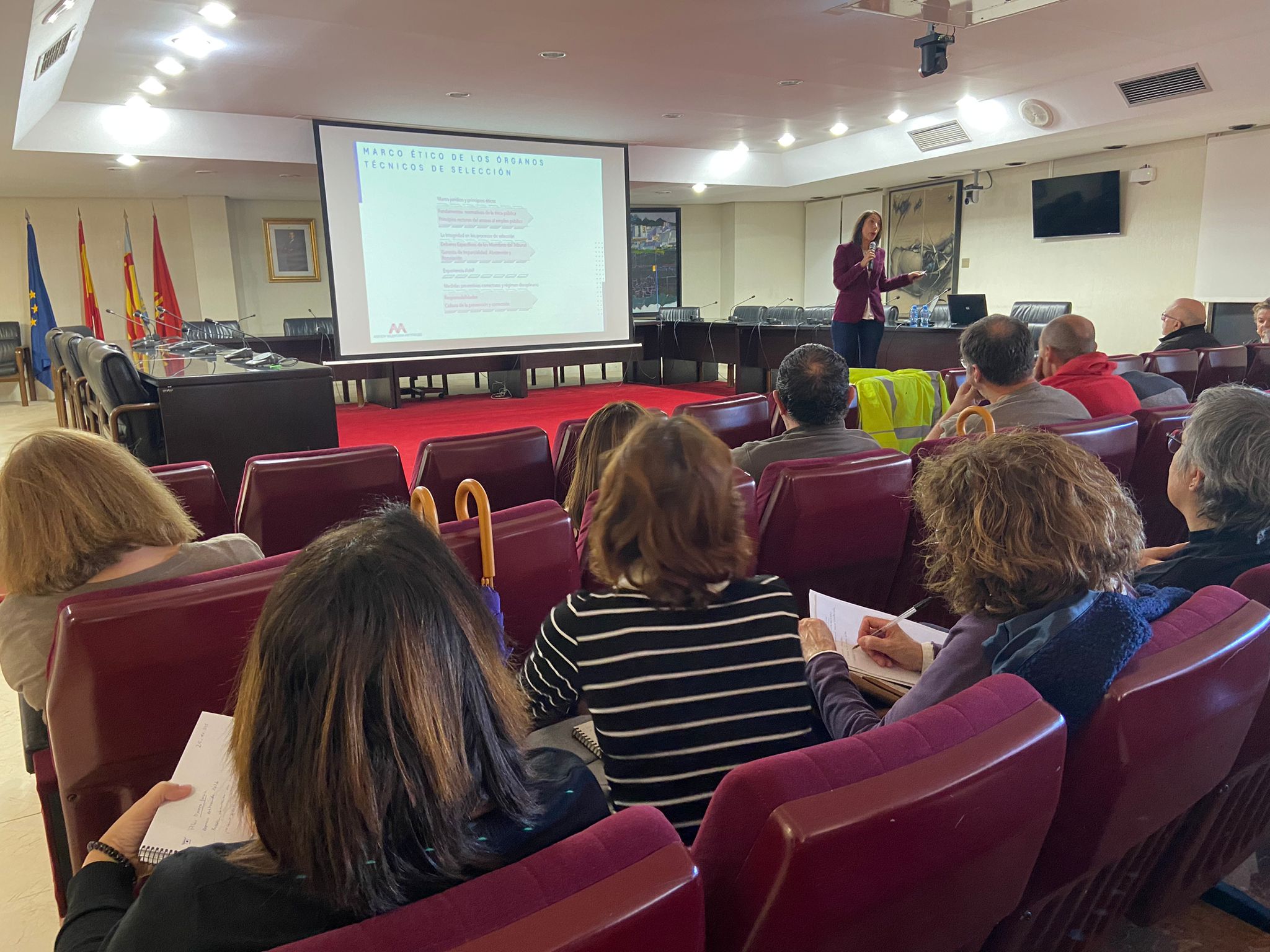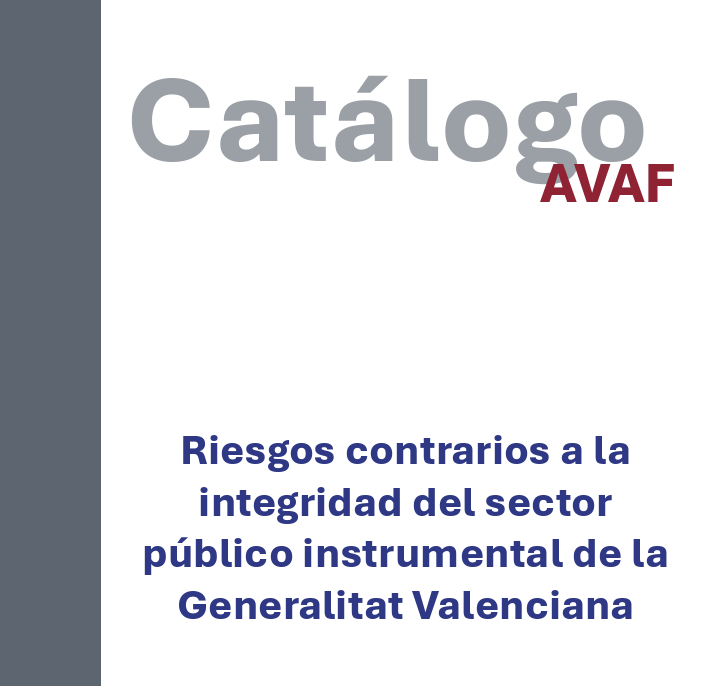Valencia, 26 November 2025.– The Valencian Anti-Fraud Agency (AVAF) has completed the fourth edition of the course “Laws and strategies to fight corruption, for public integrity and the protection of people who report regulatory breaches”, a 20-hour training action and 100% online modality.
The course, aimed at public employees of any administration, has had the participation of more than 160 professionals from the three provinces of the Valencian Community, as well as from Burgos, Cuenca, Girona, Huelva and Madrid. In the same way, there has been a wide diversity of institutions. Among them, local administrations – such as the city councils of Elda, Oliva, Sagunt or Dénia – different ministries of the Generalitat Valenciana, including the Ministry of Innovation, Industry, Trade and Tourism, as well as entities of the regional public sector, such as the Audiovisual Council of the Valencian Community.
The training, given by the AVAF Training Area and approved by the Valencian Institute of Public Administration (IVAP), has had a high female participation, which represents 65% of the total student body. In terms of professional origin, 48% correspond to the local administration, 33% to the instrumental public sector and 6% to the university environment.
This edition has incorporated several novelties, among which stand out, in addition to its entirely online modality, a specific session on the institutional integrity system of the Valencian Community and a practical workshop focused on the risks to integrity in public procurement.
The Valencian Anti-Fraud Agency is grateful for the trust placed in it by the more than 160 people participating in the action given by the institution and consolidates its role as a benchmark in public integrity training. A new edition of the course is planned for spring 2026.
Public entities interested in having specialized training in public integrity and prevention of fraud and corruption can contact the AVAF Training Area through the email formacion@antifraucv.es.


